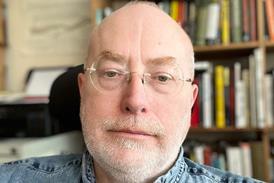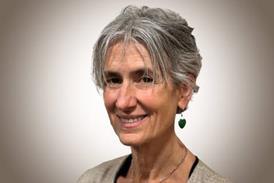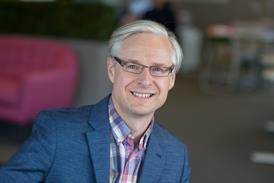Engagement and passion are embraced on the NHS Leadership Academy programme, says Chris Lake
I read Anna Dugdale’s interview with a growing smile. You see, I spend a good deal of my time encouraging leaders to be more authentic, more congruent, and especially more emotionally engaged – just as Anna describes.
Too many leaders adopt a facade as they put on their suits for work.
The trouble is, facades are doubly flawed: not only do they fail to act as the hoped-for armour, they are almost always transparent.

Ask anyone: “Tell me about the best leader you’ve ever worked with”, and they’ll regale you with stories of very real human beings. The stories will be about emotion, inspiration and love – and probably about hard-driving passion and straight-talking honesty too.
They’ll definitely not be about technocratic competencies, management speak and the uninspiring language of an armour-wearing “auto-leader”.
Fruitful passion
Throughout all our work at the NHS Leadership Academy, we encourage people to be emotionally engaged and congruent leaders. That would be good advice in any business, but it’s absolutely vital in healthcare where our staffs’ daily reality is at least as much emotional labour as it is manual or cognitive work.
‘This doesn’t mean that our programmes are soft and gentle love-ins – far from it’
So, throughout every programme, we start and end with patient care as delivered through the impact leaders can have on the engagement and passion of their teams.
This doesn’t mean that our programmes are soft and gentle love-ins – far from it. Take the Nye Bevan programme, for example. This programme prepares people for executive roles on boards or governing bodies and leads to an ascademy award in executive healthcare leadership.
Working in small groups that mirror executive teams in size and seniority, participants not only have to evidence their own development, but also contribute to the development of their peers.
As well as the professional development you’d expect for board members, the programme also requires participants to assess – pass or fail – each other’s work.
That’s no easy task: looking a colleague in the eye – a colleague with whom you’ve worked with closely and supportively – and saying with honour and care that their work doesn’t reach the standard we need for our executive leaders.
The discussions are hard work, yet the participants don’t shy away from them. Instead they draw on reserves of courage to hold their colleagues to account.
Bold statement
And why do we insist on such a bold process? Because we’d rather give people a safe space to learn to have these truly challenging conversations than later have them fail to confront anything from poor behaviours to a serious untoward incident – with potentially dire consequences for those in their care.
‘We’d rather give people a safe space to learn to have these truly challenging conversations than later have them fail to confront anything’
Our work, and particularly our professional leadership programmes, is much more than simply developmental – they are setting and holding a standard for leadership capability in healthcare.
We call this the “professionalisation of leadership”. To date, most development experiences in the NHS have been merely time served, completing a programme was all that was needed by participants.
It’s still early. The real difference will be seen over a longer period of time.
We are hoping, among other changes, for:
- greater competence and confidence in newly appointed leaders;
- a wider talent pool supporting succession planning;
- a more effective demonstration of innovative approaches to solving complex challenges; and
- a greater diversity in behaviours providing more appropriate care to our various communities and role models for our staff.
I’m glad Anna seems to have benefited from our approach to leadership development and I’m grateful that we are developing such great advocates for all we are hoping to achieve.
Chris Lake is head of professional development at the NHS Leadership Academy
Anna Dugdale: 'I want to support every member of the team'
- 1
- 2
- 3
 Currently reading
Currently readingToo many leaders adopt a facade























No comments yet